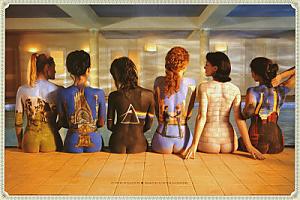I pieced this little bit together in school today. I like it.
Jesus makes a lot of comments in the gospels distinguishing himself from God. Also, Matthew, Mark, and Luke (possibly John, but don't know) never declare Jesus as God or at a God level, but call him as authority on Earth. I think that there may be two instances where he calls himself God, but there are many occurrences where clearly distinguishes himself from God. This means that Jesus and his disciples basically viewed Jesus as a prophet instead of God.
A couple of these instances are:
(When a disciple asks about when the world will end.) "No one knows about that day or hour, not even the angels in heaven, nor the Son, but only the Father." (Mark 13:32)
"I am returning to my Father and your Father, to my God and your God." (John 20:17)
For Christianity to work, though, Jesus has to be God, just in another form pretty much. There's also the Holy Ghost which finishes the three-part God. The reason for the three instead of two is because things that come in threes have been proven to be more appealing, which is why you see tons of things that are grouped in threes or repeated three times. Everything sounds catchier and more appealing. Everything from Bacon, Lettuce, Tomato to Location, Location, Location.  Two and four don't compare. Two and four don't compare.
The other problem is that Jesus was Jewish. This means that Christianity had to be a modified form of Judaism, which is why the Old Testament is in the Bible. If Christianity only included the New Testament, it would be a completely different religion, and since Jesus was Jewish, that would negate Christianity.
Since the Jewish God requires that he is the only one to be worshiped, the answer was to take Jesus and combine him with God. This makes Jesus and God one, which means that there is only one God. God is omnipotent, so he can be both. Because of the three rule as I stated above, the Holy Ghost is also incorporated.
Now there's a loophole that has been passed with the multiple personalities of a single entity. The only remaining problem brings us back to the start. Jesus negating his portrayal as God and his disciples' views of him mean that he actually isn't part of God. If he isn't, we might as well take away the Holy Ghost because the number two fails.
Now we're right back to 2000 years ago with Judaism.
If only Jesus had named himself as God or the Church had edited those parts.
Comments/Discussions
|
|





 LinkBack URL
LinkBack URL About LinkBacks
About LinkBacks





 Reply With Quote
Reply With Quote
Bookmarks